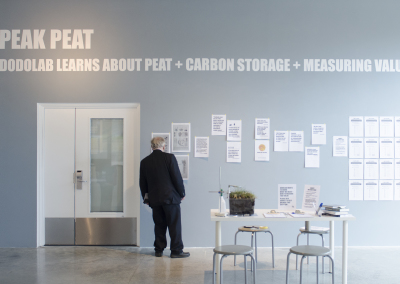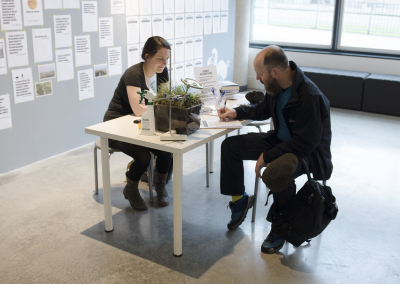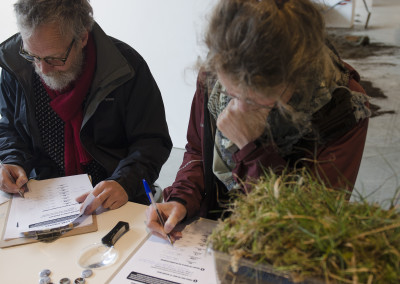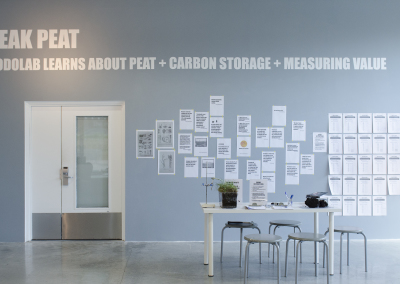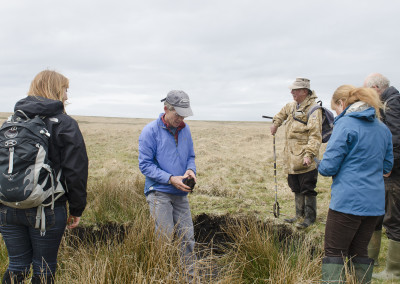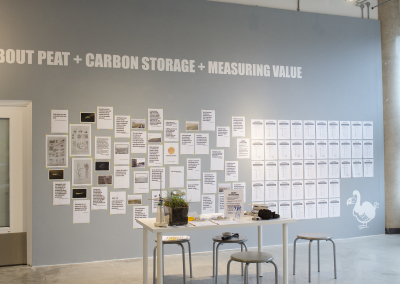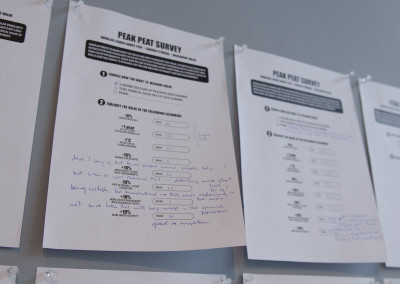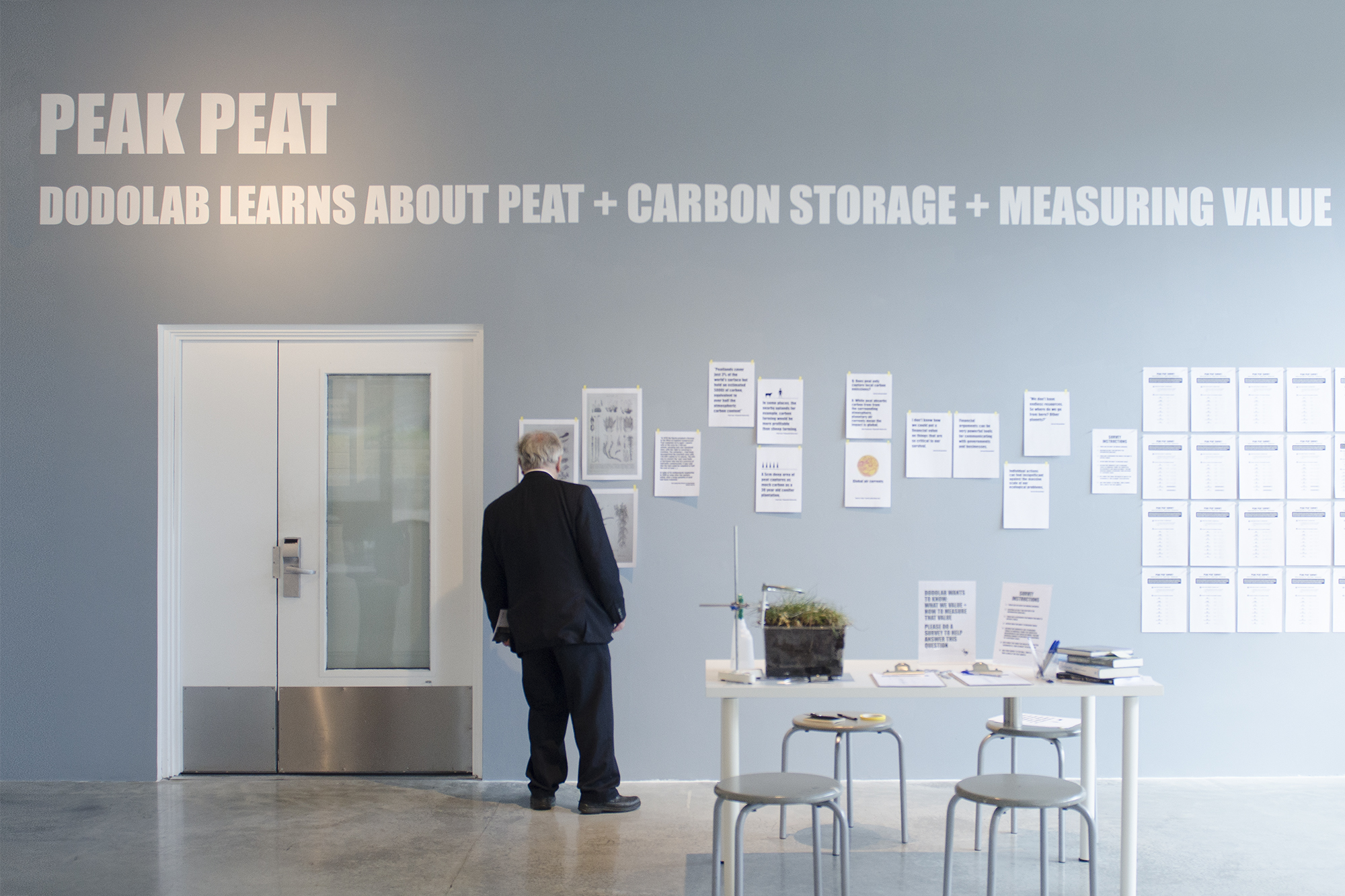
Peak Peat was created during a residency with the Centre for Contemporary Art and the Natural World at Peninsula Arts in Plymouth, U.K. The project looks at the ecological role of peatlands, particularly as carbon sinks that capture and store atmospheric carbon dioxide. DodoLab worked with the soil scientists at Plymouth University learning about the ecology of peat, the process of carbon sequestration, and the conditions that cause stored carbon to be released—particularly in the sphagnum bogs of nearby Dartmoor. DodoLab also instigated discussions with visitors in the gallery about how we measure the value of things like carbon sinks which have significant long-term collective and global benefits and yet are difficult to visualize and quantify in our everyday lives.
Using public surveys as a conversational and thinking tool, DodoLab asked gallery visitors to place values on eight scenarios either using monetary scales or coming up with their own scale with which to measure value. Carbon sinks, due to their sequestering utility, cannot be used by the processes (i.e. extraction and introduction to market) that normally establish the monetary value with which we like to understand things. Though there have been attempts to assign monetary values to carbon capture and other “ecological services,” using things like carbon credits or theoretical replacement costs, this is inevitably a distortion of their immense multifaceted and global value. And yet in a system where financial measures often dominate collective decision-making, it becomes difficult to establish values that cannot be measured—only that which can be counted counts.
The activity of the survey was therefore purposefully absurd, an impossible task with which participants were confronted. The completed surveys show the wide range of responses, including many that broke away from the survey format with responses the spilled across the pages as their authors struggled with the question and how to adequately answer it. As a collection, they begin to form a portrait of a systemic limit on articulating value, of a struggle against and within a system in which the supremacy of financial value is a major barrier to well-considered action.
As conversations unfolded during the project, with both the researchers and the survey respondents, the gallery became an ever-expanding installation, used like a bulletin board to hold the ideas that were collected by DodoLab. Statistics and facts about peat as carbon sink, many highlighting empirical measurements around the processes of carbon emission and sequestration, were clustered together with the thoughts of survey respondents as they worked through the question of value. Taken together, along with the completed surveys, this installation became a clutter of numbers and measures, never amounting to an equation that can be solved, any kind of clear answer falling away in the contradiction and complexity of intersection measurements and ideas. Instead the postings begin to capture our complicated relationship with peat as an ecological substance that comes up against the reality of our everyday lives, our limits as individuals working within larger systems and deep rooted but changing ideas about nature and our role within it.
DodoLab gratefully acknowledges funding support from the Centre for Contemporary Art and the Natural World, Peninsula Arts, the University of Plymouth and the Ontario Arts Council


